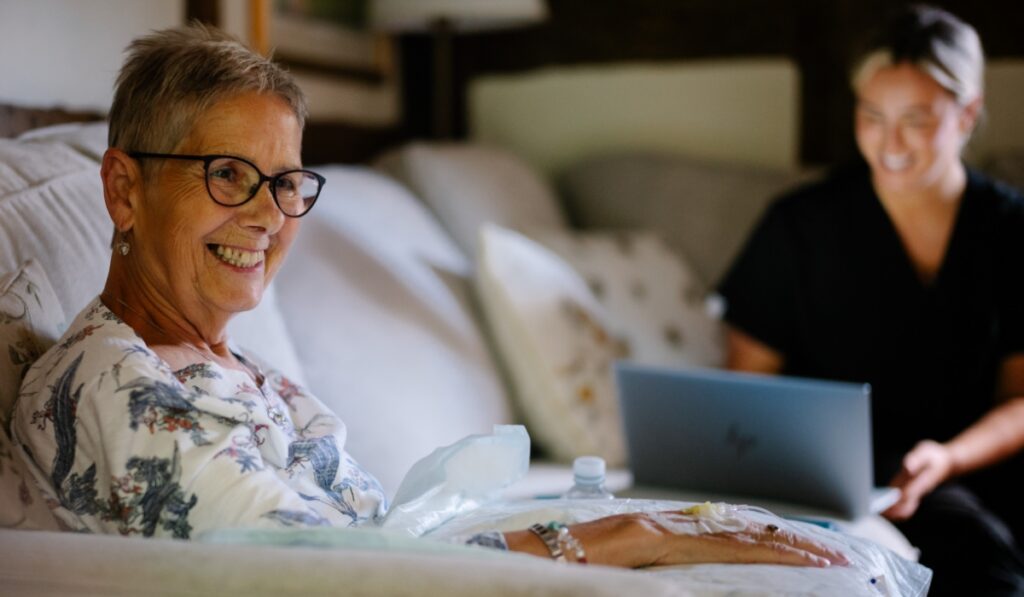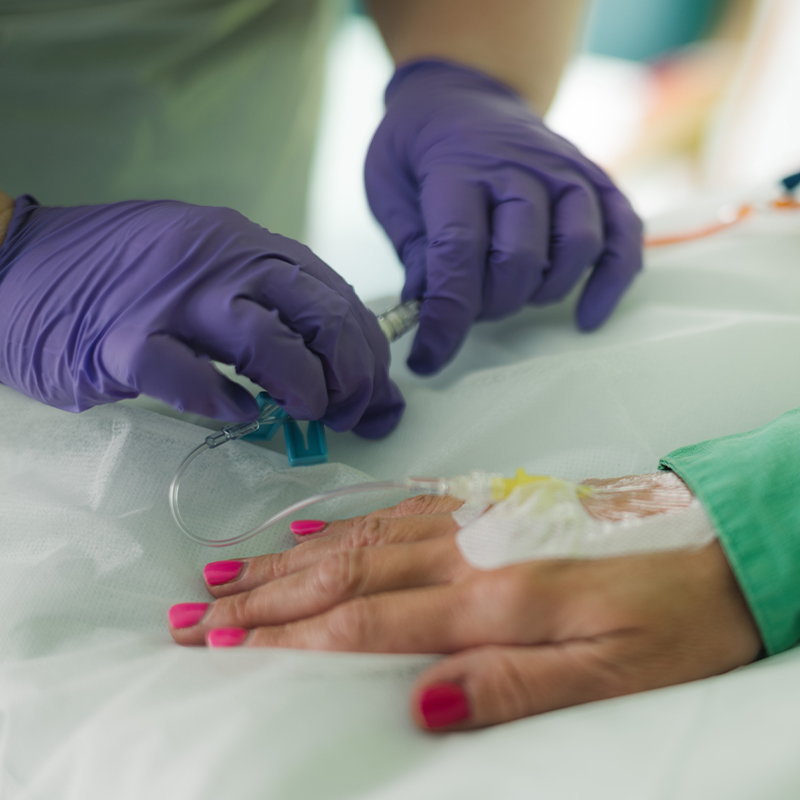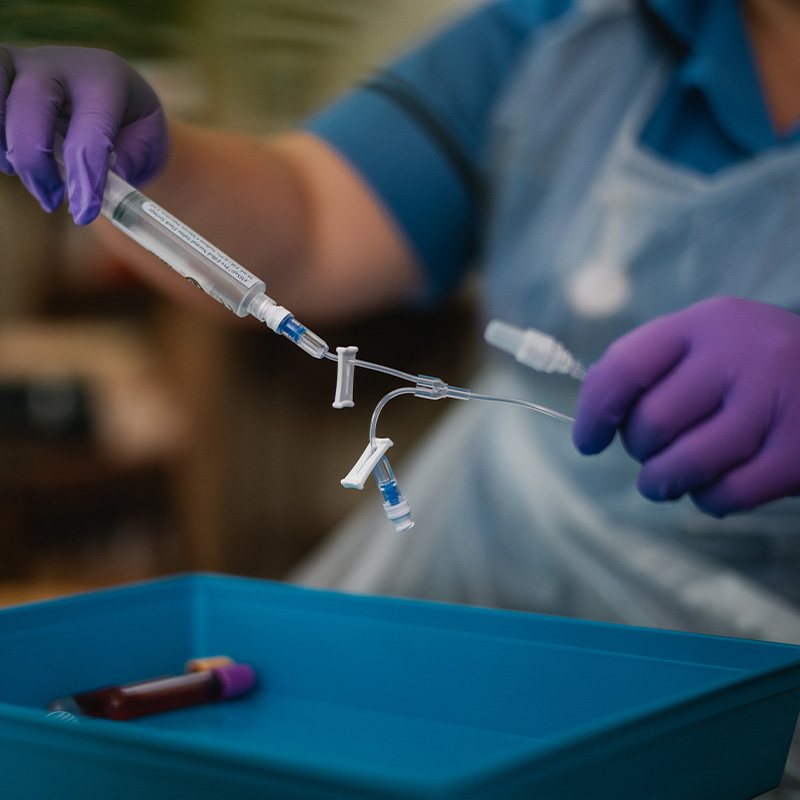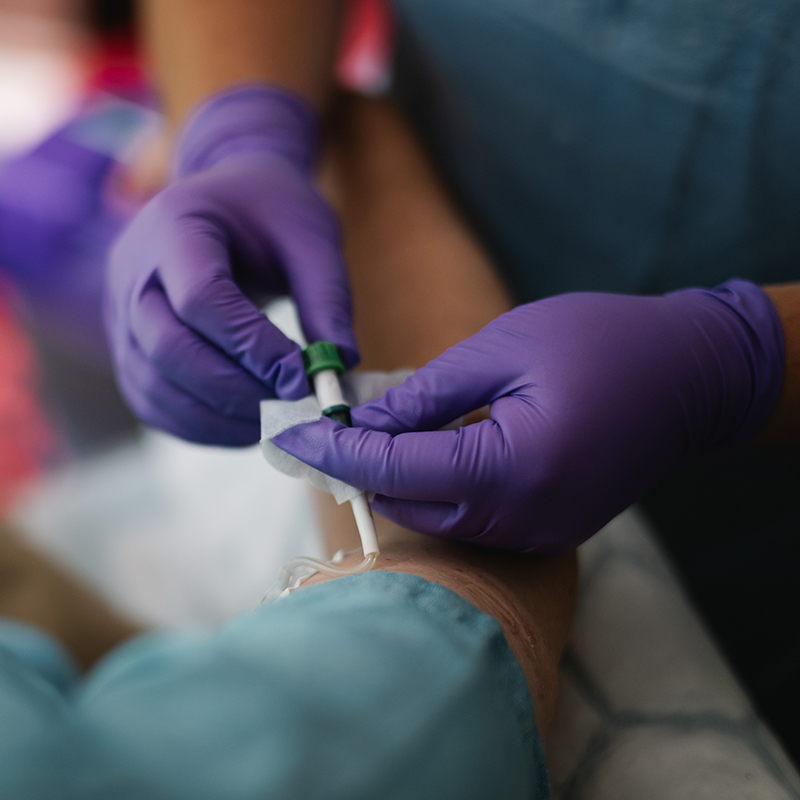Understanding skin cancer tests, screening and diagnosis
When you notice a change in your skin or receive a referral to check for skin cancer, knowing what to expect at each step can make a big difference.
Whether you’ve spotted a suspicious mole or skin lesion, been referred after routine skin cancer screening or simply want reliable skin cancer information about how to care for your skin, Our guide is here to help you understand private skin cancer treatment and the main treatment options available.
Understanding skin cancer screening
Unlike some other types of cancer, there is currently no national skin cancer screening programme in the UK. Early detection relies on personal vigilance, regularly checking your skin, including areas exposed to the sun, for abnormal skin lesions, discoloured moles or patches, and reporting suspicious moles or changes to your GP. Those at increased risk, such as people with a family history of skin cancer, lighter skin, red or blond hair, light coloured eyes, or weakened immune systems, may benefit from scheduled skin checks or monitoring in a dermatology clinic.
Screening for skin cancer is about spotting potential cancerous cells, whether squamous cell skin cancer, basal cell skin cancer (BCC), or melanoma skin cancer, at an early stage, so they can be treated early.
The importance of regular skin checks
Becoming familiar with your skin’s normal appearance helps you recognise any new skin growths, changes in existing moles, or patches that may be cause for concern. This awareness is crucial for the early detection of skin cancer, including squamous cell carcinoma (SCC), basal cell carcinoma, and rarer skin cancers like Merkel cell carcinoma or acral lentiginous melanoma. Early diagnosis can mean treating skin cancer while it is still limited to the upper layers, before cancer cells invade deeper layers or nearby lymph nodes.
If you’ve had skin cancer before, have abnormal skin conditions, or possess risk factors such as ongoing sun exposure or a history with indoor tanning devices, your doctor may recommend more frequent professional skin examinations. Signs to watch for include:
- A new mole or skin lesion that looks different from others
- Changes in existing moles (shape, colour, or size), or
- Appearance of an abnormal mole (with irregular borders or brown pigment)
- Sores or skin that doesn’t heal, bleeds or becomes crusty
- Red, scaly patches, pearly or translucent bumps,
If you notice one of these, scheduling an appointment with a healthcare provider is a step towards early detection.
Benefits and risks of skin cancer assessments
Regular self-checks and prompt clinical assessment is the opportunity to catch non-melanoma skin cancer or melanoma skin cancer at the earliest, most treatable stages. Nearly all skin cancers can be treated most effectively when caught early.
Initial assessment: When you notice a change
Skin self-awareness
Skin self-awareness involves understanding how your skin, moles, and spots usually look, making it easier to notice when something about your skin cells changes. Many abnormal cells on sun-exposed skin are harmless, but some can develop into skin cancers if left unchecked.
Comprehensive diagnostic testing
Clinical skin examination
Skin self-awareness involves understanding how your skin, moles, and spots usually look, making it easier to notice when something about your skin cells changes. Many abnormal cells on sun-exposed skin are harmless, but some can develop into skin cancers if left unchecked.
When you see your GP or visit a dermatology clinic about a suspicious mole or lesion, the skin cancer diagnosis process usually begins with:
- Reviewing your medical history and risk factors
- Visual and dermatoscopic examination of the suspicious area
- Assessing nearby lymph nodes for any physical changes
Some clinics use imaging tests such as mole mapping, especially for people at increased risk of developing melanoma.
Skin biopsy: Confirming the diagnosis
The gold standard test for confirming most skin cancers is the skin biopsy. Depending on the location and appearance of your skin lesion, your doctor may recommend:
- Excisional biopsy: Removing the whole suspicious area
- Incisional or punch biopsy: Removing a deep tissue sample
- Shave biopsy: Removing a superficial sliver, useful for flatter lesions.
These procedures are generally performed with a surgical knife or punch under local anaesthetic, and recovery is usually quick.
Advanced diagnostic tests
If a skin cancer test shows high-risk features, such as in melanoma or squamous cell cancers, further skin cancer tests may be done:
- Sentinel lymph node biopsy: Used particularly in melanoma skin cancer to check if cancer cells have moved to nearby lymph nodes (sentinel nodes).
- Lymph node biopsy: Sampling nodes that seem abnormal for cancerous cells.
- Imaging tests: CT, MRI scans, or PET scans may be used to look for spread to other organs or deeper tissues.
- Blood tests: Help assess general health, organ function, and may be relevant for rare types or advanced cancer.
Some rare types of skin cancer, like Merkel cell carcinoma, may require extra screening tests or referral to speciality centres.
What to expect: Timeline and getting your results
Most skin biopsy results are available within two weeks. Imaging or other further tests for staging are usually reported promptly, especially for suspected melanoma or squamous cell carcinoma SCC. Your clinician will explain whether cancer was found, the characteristics of the cancer cells (including depth and whether abnormal cells have spread), and whether skin cancer treatment, monitoring, or additional tests are needed.
Supporting your skin health journey
Preparing for Appointments
- List any symptoms of skin cancer, treatments or screening tests you’ve had
- Note medications, allergies, family or medical history, or if you’ve been exposed to the sun, tanning beds or have a weakened immune system
- Bring a friend if needed and keep your paperwork organised
Managing anxiety and stress
Don’t hesitate to reach out for further specialist support and consider support groups if needed.
You are not alone. With compassionate care, knowledgeable teams, and a focus on early detection and comprehensive treatment, you can face each step with clarity and confidence.
Moving forward with confidence
Early detection gives you the best chance of success, no matter the type (including non-melanoma skin cancer, basal cell cancers, or melanoma). Remember, most skin cancers can be effectively treated when caught early.
Your healthcare team is here to guide you, answer your questions, and support you with the latest advances in screening for skin cancer, early detection, and skin cancer treatment options.
We know the benefits of cancer care at home
Our specialist cancer services ensure private medically insured and self-paying patients who want an alternative to hospital can start their treatment faster. We consider all cancer treatments, including those not currently available in hospitals.

Looking for more information?
We’ve worked with thousands of patients, and we know you’ll have a lot of questions.
If you’re ready to talk to us to discuss your options, fill out the form below and we’ll be in touch quickly.
If your enquiry is urgent please call 0345 2636 123 (England and Wales) or 0345 2636 135 (Northern Ireland and Scotland).



